As India and Pakistan were fighting over Kargil heights, a south Kashmir boy takes off for US to study. Nine years later, Khuram Mir starts building a project deep south that marked beginning of a change in how Kashmir can make apple a seller’s produce. Shams Irfan met the game changer in his Rs 60 crore facility that Rahul Gandhi threw open last week, to understand his blueprint of how Rs 3000 crore economy can change for better.
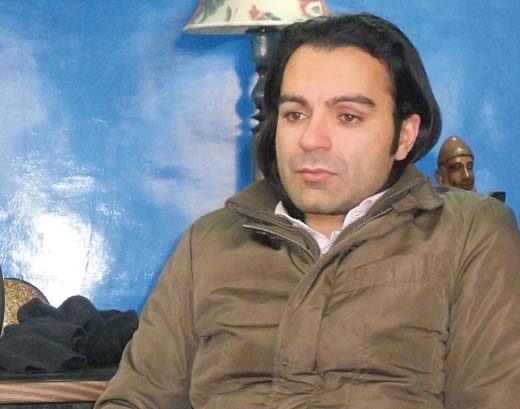
It was in late 1999 that Khuram Mir left Kashmir to study in US. Born into a south Kashmir’s farmer’s family it was Khurum’s first experience to live his father’s word: “You are born free. You deserve to live like a free man.”
“I guess that moment changed my life entirely. He set me free so that I can explore the world on my own,” Khuram remembers.
For next nine years Khuram started exploring the world on his own. He earned his Bachelor’s in Industrial System Engineering and Post graduation in operational research from US. After studies he took up job and started living his dream.
Looking back at his life in US Khuram recalls that he was a happy man there. “I was just 26 then and I had a good life. I had a good place to stay. I was earning more than enough for myself. I had routine in my life. In short I was living a really great life,” says Khurrum. But the idea that he could utilize his skills for a larger good made him to explore options outside US. “When I thought of utilizing my skills, the first place that came to my mind was Africa and not Kashmir. I wanted to help ease the logistic hurdles that have rendered World Food Programme ineffective there,” remembers Khuram.
But when he discussed the idea with his mentor and teachers in US, he was advised to choose a more familiar place. “It will take you time to understand the place and work culture in Africa. Why don’t you do something in Kashmir which is your native place? This way you can help your people too,” one of his teachers had advised him. “Kashmir was already at number two on my priority list. But given the situation it was going to be a tough call for me,” says Khuram.
Finally in mid 2008, Khuram overcame his inhibitions took a leave from job, packed his bags and came home. Khuram has been visiting Kashmir on and off during his nine years of stay in US, but he has never worked here before.
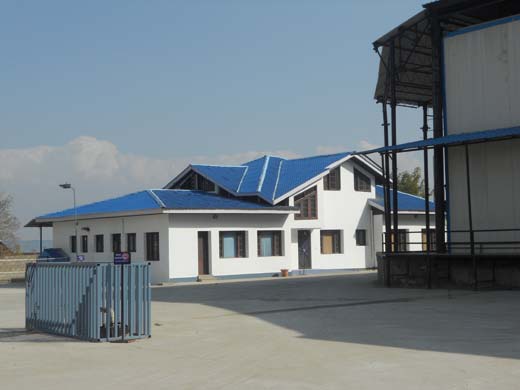 After he chose Kashmir the major issue was in which sector to invest. It took Khuram a while to figure out where he can actually use his skills effectively. On the surface it looked all problematic. “In Kashmir 60 per cent people are dependent on agriculture for their living. I figured out that this was the sector which needs both investment and expert intervention,” says Khuram.
After he chose Kashmir the major issue was in which sector to invest. It took Khuram a while to figure out where he can actually use his skills effectively. On the surface it looked all problematic. “In Kashmir 60 per cent people are dependent on agriculture for their living. I figured out that this was the sector which needs both investment and expert intervention,” says Khuram.
Finally Khuram decided to focus on Kashmir’s major cash crop apple which is a 3000 crore yearly sector. “There were two key areas where I could have invested my energies and money to boost the apple industry: Pre-harvest and post-harvest stage,” says Khuram. He chose to invest in post-harvest level. “I knew I could make timely changes at post-harvest stage only. But pre-harvest is a long term process requires big investment,” says Khuram.
During his research Khuram was shocked to learn that at post-harvest stage non-value-added-costs were huge and thus eating into growers share. “I found out that growers were the most exploited lot in the entire apple chain. There was no-ground up approach for profit sharing. I wanted to change that attitude,” says Khuram.
Khuram knew that working in a conflict prone place like Kashmir is not going to be easy. But he had already made up his mind that he will not give up unless he has tried.
He was confident. But in late 2008, at the peak of Amaranth land row, while on his way to Lassipora, where his Controlled Atmosphere Store (CAS) was under construction then, he was stopped by the CRPF personnel. “I had a black flag tied to my car’s antenna in protest against civilian killings. There was strict curfew in place. Nobody was allowed to move. They stopped me and that black flag infuriated them a lot. They tore it down and stomped on it in mad rhythm. Then they charged towards me. They would have killed me for sure but somehow I survived safely.”
This was Khuram’s first hand experience with the kind of Kashmir he had mostly read about in newspapers. He could not contain his anger and frustration, and wrote a small piece about the entire incident and mailed it to his friends across the world. “My friends from US and other countries were like, ‘this is crazy. Why you doing this to yourself. You still have job in US come back please,” remembers Khuram.
The incident has left an impression on Khuram’s mind and he has almost decided to pack his bags and leave for good. “Then I suddenly realized that if I had to leave then I will leave on my own terms, not because somebody is pushing me out,” says Khurum. It would have been an escape. He finally dropped the idea of going back. “It has been very difficult ever since but the incident has only hardened my resolve to work for the place I belong to,” feels Khuram.
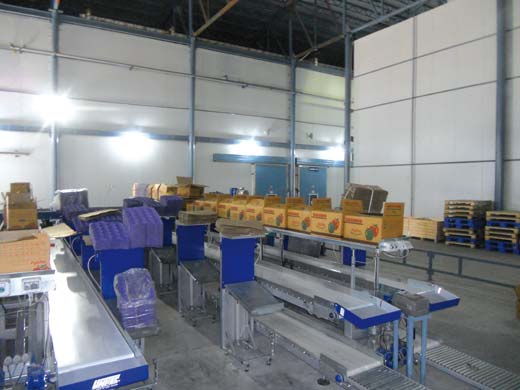
In May 2008, Khuram with part of investment from a Delhi based businessman Rakesh Kohli, started a 2000 metric ton cold storage for apple produce. “Finally we had known how to reduce the non-value added costs at the post-harvest stage,” says Khuram. Within a year Khuram added another 3000 metric tons capacity to his store and this time it was CAS.
In 2013 Khuram’s HN Agri Serve Pvt Ltd added 5000 metric tons capacity of CAS thus making it one of India’s major CAS stores, second only to Adani’s in neighbouring Himachal. But what made his plant South Asia’s biggest pack house was the grading, sorting, packing line that he accessed from different manufacturers across the world. It was this pack house and an integrated capacity that Rahul Gandhi formally threw open last week.
“I am a mathematician. I love numbers. All I know is how to make sense from these numbers. And I did the same. I am just trying to rearrange the numbers for my people so that their lives become a bit easier,” says Khuram.
Creating infrastructure is much easier in this era when banks are flush with money and are waiting for the nest ideas to implement. What makes Khuram different is that he defied conventions and designed models for his business. His idea to make growers feel important and not ignore them as has been happening was much taller an idea that the pack house he built.
That is why his style of work is entirely different from what is in vogue in this sector. He made it a point that no grower is treated routinely at his facility. There is a grower’s lounge where they can relax while their produce is being stored. While HN Agri offers growers value added services like storing, selling, packaging of fruit, refrigerated logistics etc at their facility but it is the scheme part of it that makes his operations different.
Khuram developed models which he applies to get results. He hires experts who pitch a tent inside orchids in different villages to interact with farmers. “We call it black room. It is a huge tent with a capacity of 120 people. We then use projector to give growers high-tech presentation trying to make them understand that they can stop being exploited,” says Khuram enthusiastically.
His thrust is to make growers understand that the traditional practice of using middlemen to sell their produce is exploitative. During his interactions with growers Khuram observed that at the end of the season growers are left with no money at all as they had already used the resources. Most of the growers rely on money lenders, who are middlemen and in most cases based outside Kashmir. The system in practice since generations is that a grower borrows money from these middlemen whenever the occasions like marriage of daughter or a construction of a new house arises. They then are bound to sell their produce at the prices determined by the middlemen. In most of the cases that Khuram came across a grower is already in debt before he harvests his produce. “We tried to tell them to earn first and then spend,” says Khuram.
In order to change the system of remaining in debt perpetually Khuram has devised a model for growers which he calls hand holding model. “In this model we help a grower reduce the wastage, non-value added costs and get rid of the middlemen,” says Khuram.
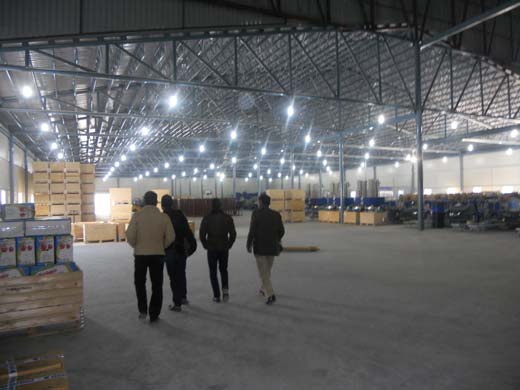
The second model that Khuram has designed for growers is minimum guarantee price model which takes care of their pre- harvest monetary needs. “We are trying to change the culture. I know its difficulty to change something that is in practice since ages. But often small changes end up making big differences. And I am hopeful that it will work,” says Khuram.
In last five years of operations since Khuram started with a 2000 metric ton storage capacity unit, he has successfully expanded his reach to 2500 farmers. In 2013, his company did business with about 1200 farmers at both pre-harvest and post harvest stages.
The change can be seen by the fact that in 2008 only 5 per cent of the storage facility was utilized by famers and the rest was occupied by big traders. But this year 75 per cent of the storage space is rented out to farmers. “They (growers) have seen the difference that how it will benefit them if they skip the middlemen and sell their produce at a suitable time on their own,” says Khuram. “I think the message is conveyed that a grower should be the main beneficiary.”
It costs just Rs 23 per kilogram to utilize all the facilities offered by his pack house including CAS for a period of 8 months. Now the growers have enough of confidence as the yield has improved by Rs 6 per kilogram.
Khuram handpicked his machines and equipments from across the world. While CAS plant and grading and sorting machines were ordered from Italy, refrigeration plant was imported partly from Japan, Germany and USA. Even the bins came from Poland.
His biggest contribution to the apple sector has been his evolution into a role model. As he sits as the biggest investor in the pre-harvest systems in Kashmir, he is a guide and a mentor to many others who have started investing into the sector. “We produce around 18 lakh metric tons of apple yearly. And my pack house can retain just 10000 metric tons which is negligible compared to the requirement,” says Khuram. “So we must encourage others to get in and add to the capacity which is still too little.”
He is cool if others use his models. “In fact I want them to replicate this model as it is grower friendly.” Khuram brings interns from across the world to help local talent grow and learn new techniques. “At present there are two foreigners working here, one is intern consultant and other is a civil engineer,” says Khuram.
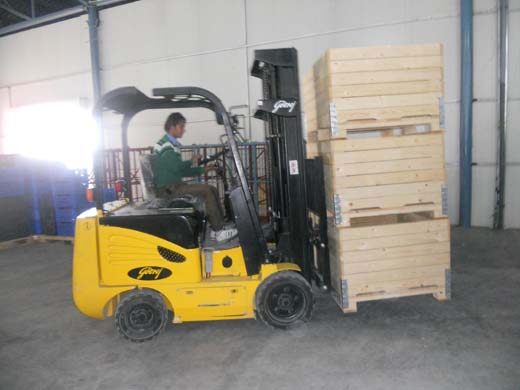 There is a huge scope in this sector. Italy and Kashmir have almost the same apple produce. While Italy has 600 pack houses, Kashmir has just four! “I have made just a small intervention. We need to overhaul it in order to make it sustainable and economically viable for farmers,” feels Khuram. “Ideally small pack houses should come up at village levels.” He is planning some experimentation on this front.
There is a huge scope in this sector. Italy and Kashmir have almost the same apple produce. While Italy has 600 pack houses, Kashmir has just four! “I have made just a small intervention. We need to overhaul it in order to make it sustainable and economically viable for farmers,” feels Khuram. “Ideally small pack houses should come up at village levels.” He is planning some experimentation on this front.
The race has already started. “We have 22000 metric ton capacity in operation right now and another 55000 capacity is at various stages of implementation,” M Muazam, MD J&K’s state industrial development corporation (SIDCO) said. “As the demand for storage increases, the scope for additional investment into the sector brightens.” Insiders in the market said the Rs 200 crore investments has already gone into the CAS as it has opened new opportunities. Every pack house employs around 50 people, mostly women.
But the passionate mathematician will have to utilize his marathon running capacity to make things change. Khuram, it is not much known, is an avid marathon runner who can run up to 90 kilometers at a stretch. His last marathon was running 50 kilometer ultra marathon run in Annapurna Mountains of Nepal. So he is expected not to feel tiresome. Go ahead.















